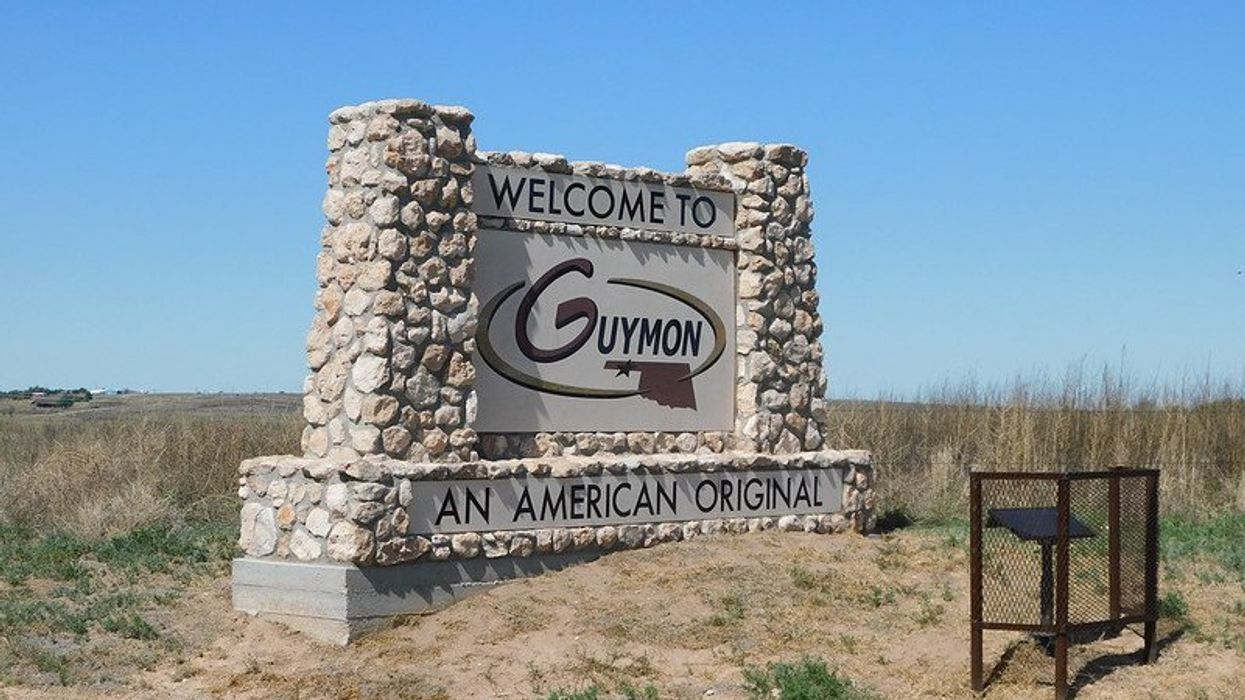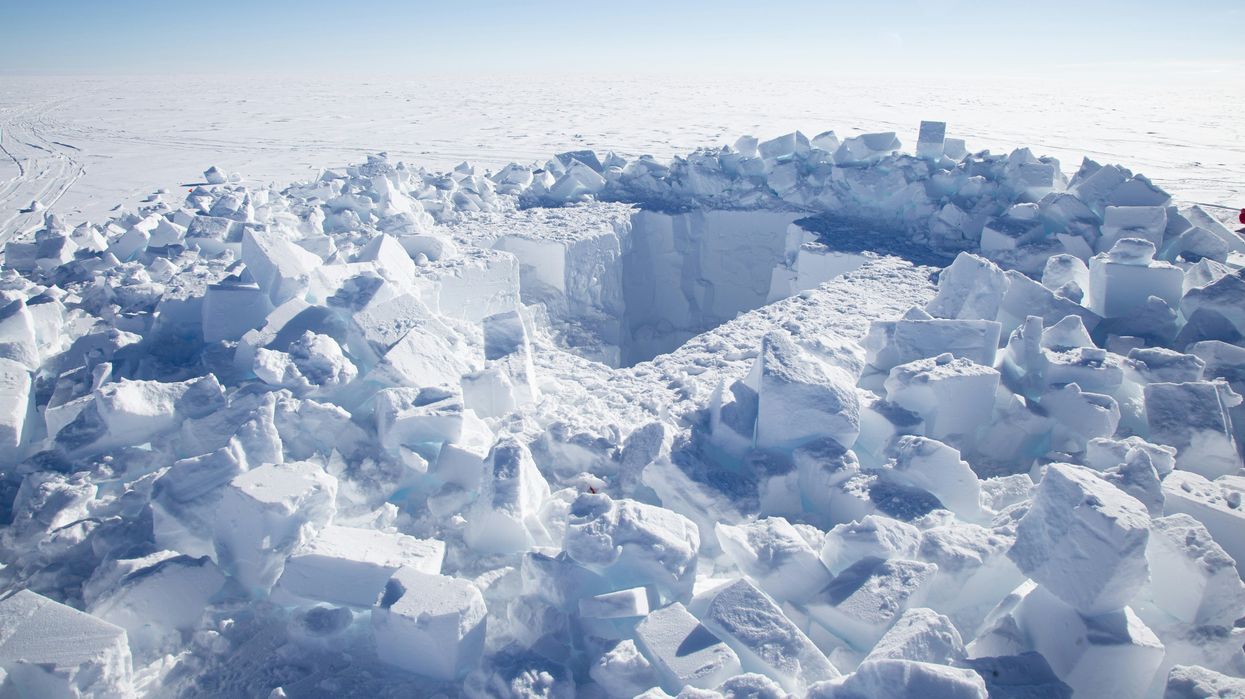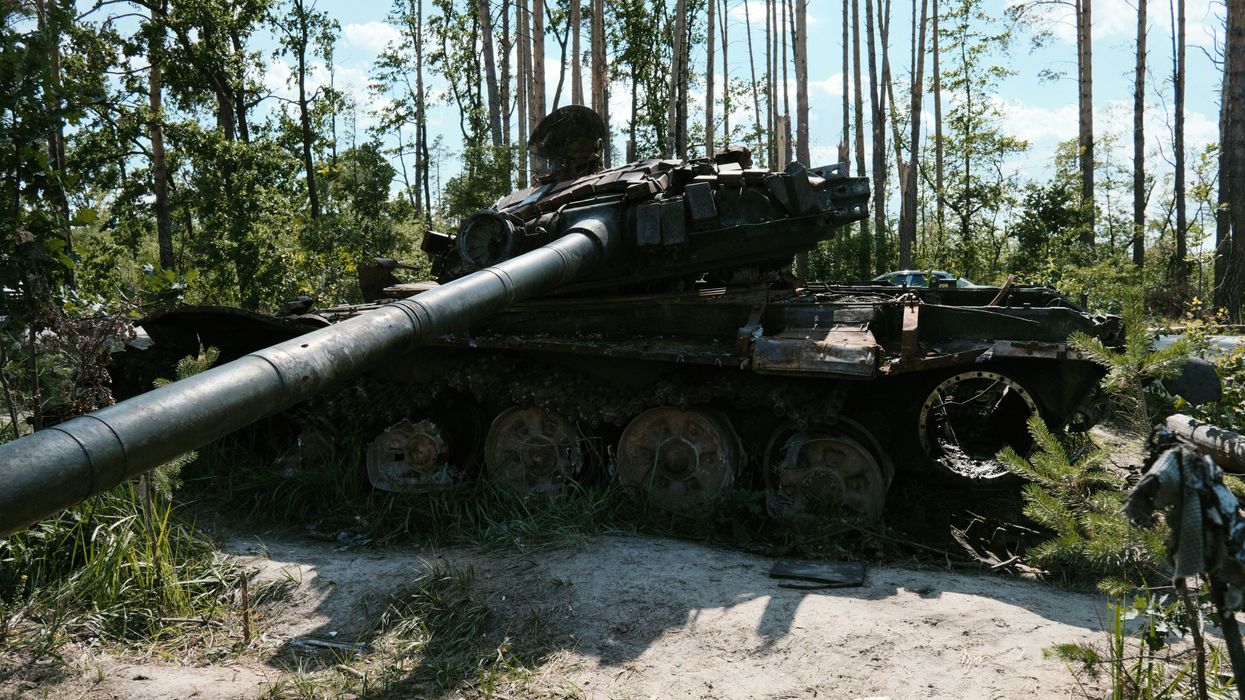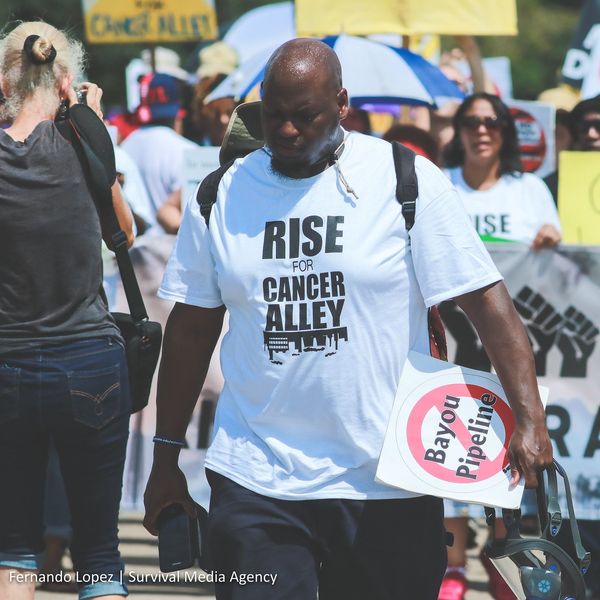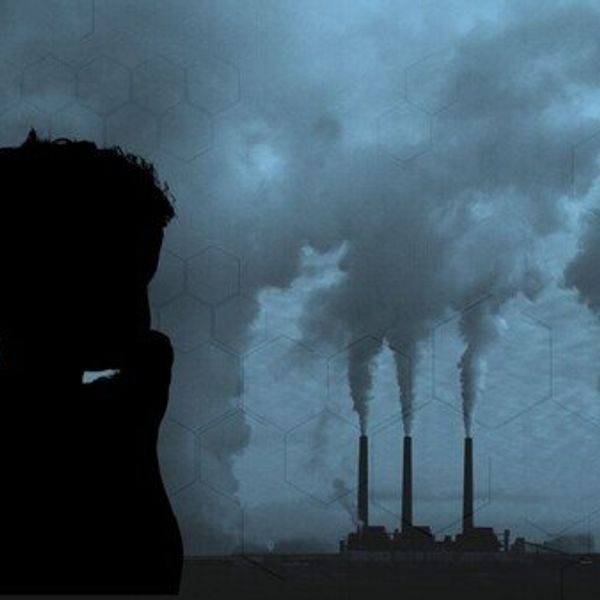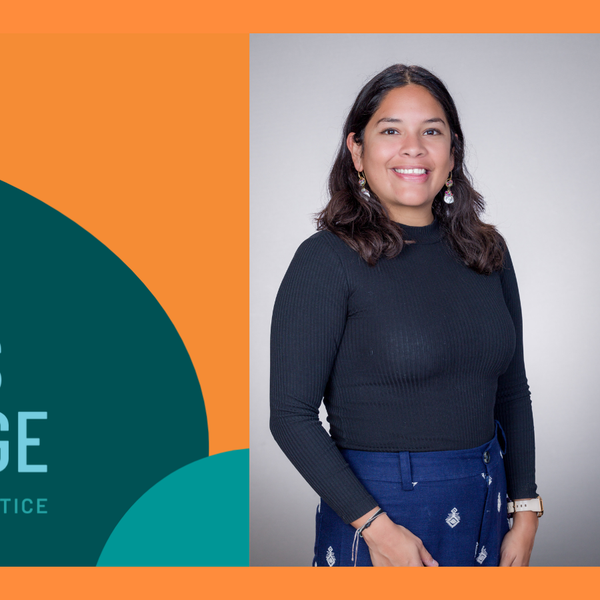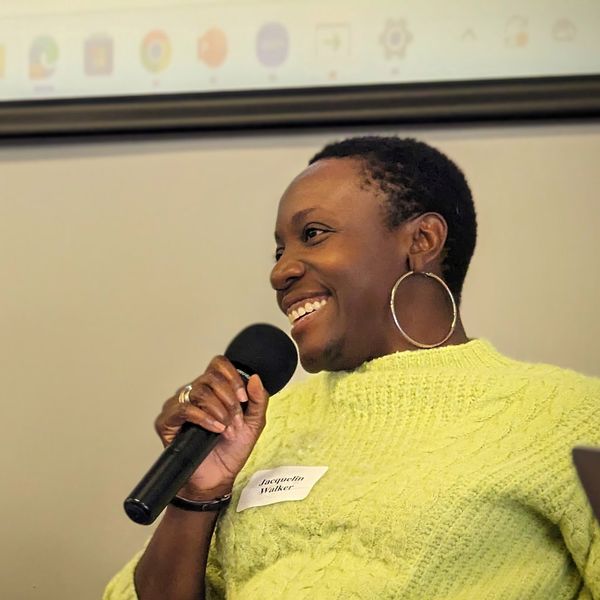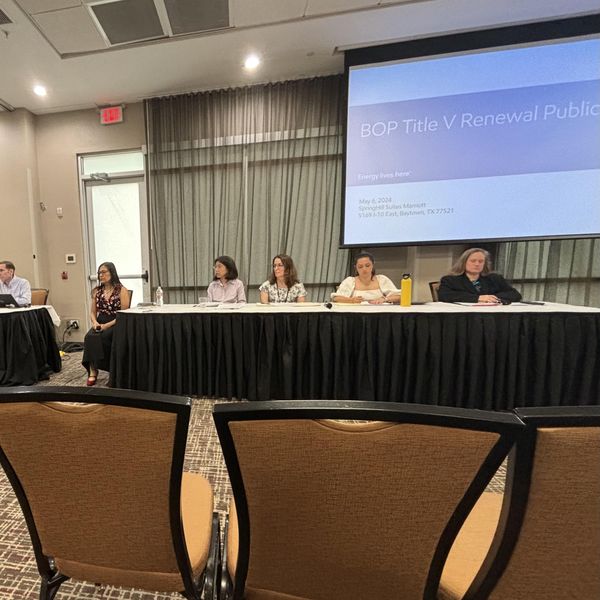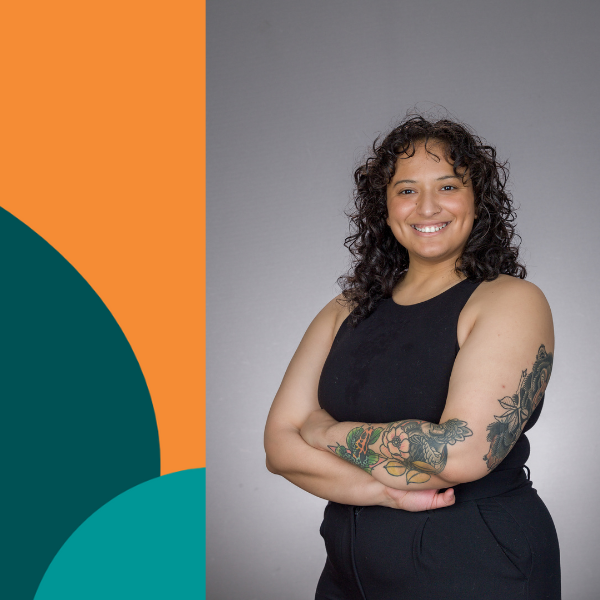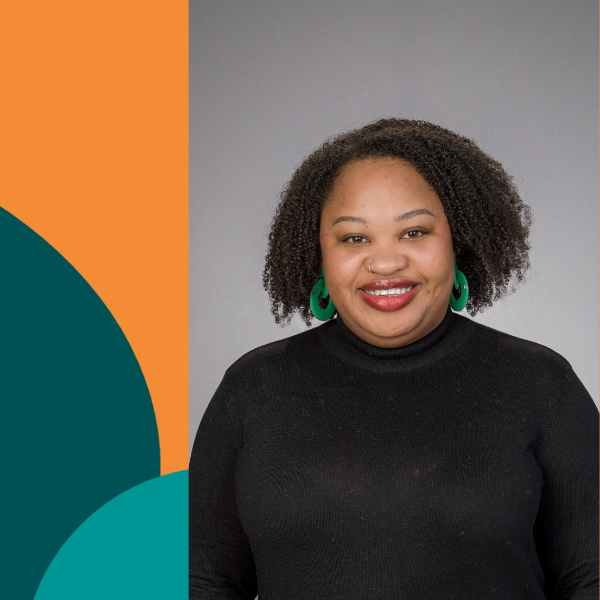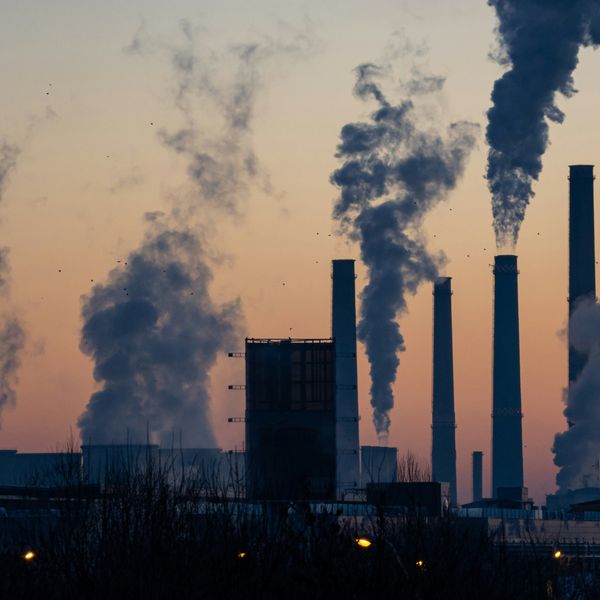Idalmis Vaquero joins the Agents of Change in Environmental Justice podcast to discuss her upbringing in an environmental justice neighborhood, how it led her to law school, and how Just Solutions turns communities’ priorities into policies.
Vaquero is a senior policy analyst at Just Solutions, a BIPOC-led, national climate organization that partners with communities disproportionately impacted by climate change.
The Agents of Change in Environmental Justice podcast is a biweekly podcast featuring the stories and big ideas from past and present fellows, as well as others in the field. You can see all of the past episodes here.
Listen below to our discussion with Vaquero, and subscribe to the podcast at iTunes or Spotify.
Transcript
Brian Bienkowski
All right. Well, thank you so much for that. It's so great to have you here. In researching your organization and your work, I was I was very excited about this. So So thanks again for making time. And before we get into some of that work with Just Solutions, I know you had firsthand experience with environmental injustice in your childhood. I'm going way back. So can you talk about growing up in the Boyle Heights neighborhood in Los Angeles and how that impacted what you ended up doing for a living?
Idalmis Vaquero
Yeah, of course, I'm always proud to say that I'm from Boyle Heights. It's a Latine immigrant community filled with so much great food and community. But one of the things that I think not a lot of people know about me that I also grew up in public housing. And the public housing project that I lived in and grew up with is located within walking distance to the city of Vernon, which is an area densely packed with some of the most polluting industries, including animal rendering facility, truck depots, warehousing, and several brown brown fields. And as a high schooler, I would train for marathons, and see a lot of the trucks often and often get headaches from like the hideous smells coming from the rendering facility, without at all really knowing that this meant or this was called environmental racism. And I learned about these issues as an undergrad. And that's when I actually gathered the language and knew what environmental racism meant. And I wanted to highlight public housing because too often public housing is placed on cheap land formerly and sometimes currently contaminated. And for the most part, families, including my own didn't know that our homes were contaminated, or we were living on toxic lands. And so I just I just wanted to highlight that because it's something I even in my current role right now, I continue to learn so much about the impacts of environmental injustice of public housing, and encourage folks to actually look up poisonous homes, which is a report by the Shriver Center on Poverty Law, because it was one of those moments of like, "Aha!" I understand like, you know, what the impacts were, and how often public housing has also been placed right next to some of these polluting industries. So just just wanted to highlight that.
Brian Bienkowski
For sure. And we have, I will add some links. We have written pretty extensively about kind of the housing environmental justice Nexus. So thank you so much for bringing that up. And I don't want to brush past all of that super great context, but somewhere in there, you mentioned marathons. Did you ever did you ever, did you do one? were you able to finish one?
Idalmis Vaquero
Oh, yeah, I was actually. I still am a very, I've been like runner. I ran six marathons LA marathons.
Brian Bienkowski
That is incredible. Well, I don't know when these took place. But regardless, when they took place, a big congratulations, because I have done some half marathons, and I have done some 100, 150 mile bike rides. And I cannot get my head around the full marathon. So anybody who does it, I give a lot of kudos to.
Idalmis Vaquero
Thank you,
Brian Bienkowski
For sure. So I know you also did get kind of along your path to Just Solutions. You did some organizing work at Communities for a Better Environment. So I'm curious what you were working on and what did you find worked in motivating young people to get engaged on these environmental justice issues?
Idalmis Vaquero
Yeah, so I think once I learned about that environmental injustices happening in my community, I wanted to find a way to connect all of what I was learning in the classroom with things happening in real time in my community. And so that's how I learned about Communities for a Better Environment as an undergrad and started to get involved with like the youth organizing there. And so it was actually during my some of my initial days at CBE that I learned about Exide. And that really propelled me to just dive deep into environmental justice work. So for folks who may not know, Exide, was a battery facility, processing facility in the city of Vernon, it polluted so much lead into our communities. And some say it's about like 7 billion pounds of lead over its 30 year life. And so yeah, that was that was one of the big like, defining moments of my childhood, I would still say, maybe teen teenhood, growing up. And, you know, as many folks may know, lead is a toxic and potent neurotoxin, that affects a child's brain and development. And so for me, that was something I just learned, learn about and ran with it, because I couldn't quite understand how a lot of our state agencies and air regulators in our region were allowing such a toxic facility to continue breaking environmental laws. And so that really gave me the tools and all this anger of and desperation into organizing youth and door knocking in my neighborhood and teaching other youth about Exide. Yeah, so in terms of what motivates young people, I think it's helping them realize that they do have political power, I think often, a lot of youth that I work with, we're not yet 18 or are not eligible to vote due to documentation status. And so folks may not think that they have the political power. But at CBE, I learned that through leadership training and capacity building. It was the first time a lot of us saw themselves as having power, maybe not voting power, but other ways and political power, organizing power. So they were very motivated to go to public hearings and sign up and give public comments. And so that, to me, is one of the things I see that motivates young people is just having, allowing them to realize their full potential as, as members of our like society, and even if they're not 18, they can still do other things that allow them to have a voice.
Brian Bienkowski
And that Exide plant is, is one of the kind of poster children for environmental justice. I'm hoping, hoping listeners have heard of that before. And I've always thought of lead as a really powerful example of environmental injustice, because lead impacts the brain, which impacts your ability to get an education, to get a proper employment, and then it affects your earning potential and your ability to get health care. So it's just really ugly, spiraling cycle in a lot of neighborhoods. I'm from Michigan, and my parents are now just north of Flint. And of course, there was the lead water crisis there. So I think lead is a really potent example of injustice. And I'm, I'm glad you brought up brought up that example where you were at. SoIdalmis, before we get on to some of your work with Just Solutions. I've been asking everybody for years now, what is the defining moment or event that shaped your identity?
Idalmis Vaquero
Yeah, I think, um, to me, it was learning about Exide. But also now in my professional career, I think it's been working alongside community members and understanding the real struggle that environmental, you know, the faces of environmental justice. And I think, for me that one of those particular moments was, during my work at Communities for a Better Environment when I was... so I was in an audience of a board meeting for the California Board of Environmental Safety, which it folks may not know, is a new governing board for the Department of Toxic Substances Control, which was actually the agency that allowed Exide to continue to operate without any real penalties or allowing them to just, you know, drag up violations. And so, I was at a board meeting, you know, earlier this year, and I started to, it was public comment period, and I saw a lady get up from it was her turn to speak and she was uh, she spoke about how her home was getting cleaned up, but her and her son with disabilities and respiratory complications had to shelter indoors while the remediation was actually happening outside her door. And, and she just like talked about how she had to close all the doors and windows during a very hot summer. And all because she wasn't told about the free relocation options that she had. And so this woman like reminded me of my own mother, because she was a Spanish speaker, and a working mother who actually had to take time out of her day at work to come to a public meeting at 3pm. So I just like, you know, it really highlighted to me the not only the lack of, of work, our agencies do to make sure that meetings are accessible, but they are actually meeting the needs of our communities by telling them about the free resources they have. And so I approached her right after she finished speaking and helped her navigate the situation. So at the end of the day, like she was able to get relocated to a hotel for free, which was paid by because of the work we've been doing. And it was, again, like a defining moment for me, because even though the woman didn't quite understand the environmental lingo, or, you know, didn't know what she meant, she told me, she was afraid of public speaking. She stood in front of the board, and really, really, because her children, her child's health depended on it. And her bravery really inspires me to this day, it just comes to show that community are the experts of their lived experiences, and they matter and should be elevated and the work that we all do.
Brian Bienkowski
Totally, I really appreciate that example. And it speaks to the the work, even when agencies are doing something that's good and healthy for communities. If that message isn't getting through, then what good, then what good is it? we just had a, we have a reporter in the Gulf Coast, who wrote about who actually made a video about language justice, and how there's a large Spanish speaking community down there, that does not know when these air monitors are saying there's bad things in the air. So I really appreciate that example. And I wanted to take one step back before your work at Just Solutions and ask you, we have so many people on this podcast who are in this space. And so very few of them are on the legal side of things. So how did you decide to go to law school?
Idalmis Vaquero
So growing up, I was always like a translator, for my family and translating, you know, legal documents or documents just in English like that. That was part of my job. And so for me, I felt like law school was another opportunity for me to do that, and at a broader scale, to translate what some of these environmental laws were doing to my community, and why they weren't actually protecting us. So that was in part, one of the reasons why I decided to go to law school, I was like, "I'm a big nerd, maybe I can dig into some of these issues and understand them better." So yeah, now I, you know, I think the laws are very narrow, and they can they can only protect communities, you know, when a facility is violating their permit, or, you know, when it's under a certain limit. And so I really, I really feel like the laws aren't quite structured or written to protect the environmental community, I mean, environmental justice communities and the health of communities. So.
Brian Bienkowski
no, that's great. And I think, first I asked you that question, not because I think it's an odd choice, but because we don't have a lot of people on IN law and people working in the legal space, it's so crucial for any kind of movement in the Justice space, because as you said, you mentioned the mother who had who had to come at three o'clock to a meeting, imagine that same mother, or any of us really trying to go through these, these documents from agencies and the EPA, and make sense of how they are supposed to protect us. I'm a reporter, I've been writing about the environment for nearly 15 years And the documents are foreign to me often so. So thank you for playing that, that role of of middle person and working to explain this to some of us. So let's talk about your work at Just Solutions. So what are some of the key federal policies that you all are engaged on right now?
Idalmis Vaquero
Yeah, so we're very focused on the implementation of some of the key programs getting developed as a result of the Inflation Reduction Act and the bipartisan infrastructure law. And this includes the development of one of the biggest buckets of funding in the IRA, the Greenhouse Gas Reduction Fund, and which would help build our clean, clean and green infrastructure. We also work on the SAS recovery on resiliency projects. And another big piece of our work so far has been working on some of the policies that the Biden administration is developing in response to some of the executive orders on environmental justice. So more recently, EPA has released a draft of its meaningful involvement policy, which is meant to update its approach to public engagement. The Council on Environmental Quality, again, has first has its first ever EJ scorecard, highlighting some of the executive agencies progress on Justice40, commitments, and two other ways to improve federal the federal government's approach to gathering and using data and science to address environmental justice. So there's so much happening at the federal level. And it it's all about keeping an eye on the price and getting the administration to actually deliver on all the benefits and investments that environmental justice communities deserve and need.
Brian Bienkowski
So I know the flip side of that coin in working with agencies and pushing them is partnering with communities, and you guys have a strong focus on that. So I'm wondering if you can outline how the organization works to turn communities priorities and ideas into policies? And what does that look like on the ground?
Idalmis Vaquero
Yeah, we are in constant communication with our community-based partners and coalitions to alert them about the things happening at the federal level. Oftentimes, you know, we see that because community based partners aren't focused... ARE focused on the local and or regional issues, they don't have the capacity to engage in federal policies or programs that are having or will soon have an impact in their community. So we serve as the eyes and ears to let them know about the upcoming federal issues that are arising and just and then collaborate with our partners on issues that they are prioritizing. We provide technical and policy research and expertise to raise rates are collected collective concerns and their concerns with relevant federal agencies. And so yeah, a lot of a lot of this is proactively assessing the challenges and opportunities within local, state and federal legislation and programs and produce. We produce relevant analysis and original research, especially when state and national priorities are emerging.
Brian Bienkowski
And can you talk about some of the victories you've all had some things you're proud of?
Idalmis Vaquero
Definitely. So this past year, like I mentioned, one of the biggest buckets of funding in the IRA is a Greenhouse Gas Reduction Fund, which is approximately $27 billion going towards grants to finance clean energy and climate projects. And because it's such a big bucket of funding, there's a lot of flexibility provided by the authorizing language in the law, and it could potentially have a huge opportunity to advance environmental justice, but only if it's implemented appropriately. And so Just Solutions along with our partners have been developing best practices to address the concerns, and to help ensure that environmental justice communities are meaningfully centered and empowered in the development of this program, and so along with Just Solutions and 50 of our organizational endorsers, we called on applicants of of this fund to publicly committed to adhering to the best practices for equity and governance, to make sure that projects went in, prioritize direct benefits to low-income communities, require community engagement and operate with transparency. And so we actually have have had a couple of those applicants commit to the principle of the principles we we've outlined. And just hope to get even more. One of the other things that we've been working on is partnering with community-based organizations in Los Angeles, to provide an analysis of the different inflation Reduction Act programs, and bipartisan infrastructure programs to help them identify which programs they could upfront apply to and leveraged to support their projects and priorities in their community. And so it's really about providing the technical expertise and help to allow communities to realize the programs that they've been envisioning for their communities. Excellent.
Brian Bienkowski
And you mentioned going to law school, wanting to see more women of color in the legal space for in the environmental legal space. And I know Just Solutions is a bipoc-led organization and diversity. Let's be honest, has an always been the strong point for environmental organizations, I actually just spoke with Ebony Martin on the podcast, who was the first Black woman to lead Greenpeace may be the first Black woman to lead a legacy environmental organization, I think. So I'm wondering what this kind of work culture means to you, and perhaps how it compares to other workplaces and programs that you've been a part of?
Idalmis Vaquero
Yeah, I think the word culture really has been one of the strongest selling points for me and Just Solutions. I think we foster and we foster a feminist work culture. And so for us, that means really valuing the health and well-being of our staff, and I feel really valued and, and in community with my fellow co-workers. And we are also a collective, which to us, that means that the work is not just about what the individual is doing, what one person is producing, or elevating their personal power, but really accomplishments and recognitions are, you know, as part of our group and in general, so that's, I find that it just creates a different environment and sense of like, responsibility and sense of generosity and support. And I feel always welcomed to the, to the work environment, and we pride ourselves in practicing also a healthy work-life balance, as well. And I see that it's not just practice among staff, but really within our leadership as well. And it really, you know, trickles down to the ways that our staff feel like they can take breaks and you know, feel like there's not a lot of burnout. So I find that that's, you know, one of the best aspects of our work culture. And I think that, besides that our staff, our staff come from, and are rooted in, in their lived experiences coming from environmental justice communities. And so I think it's something you don't often see in a lot of the big environmental organizations. And it actually feels like not only influences, but our work is much more rooted in the lived experiences that we hold, but also that we know and seek out and with our partners, because we're always looking to engage with those that are, the experts have their lived experiences.
Brian Bienkowski
So not to go back to the example of the mother at the meeting again, but you said, you know, that can be both energizing on one hand, on the other hand, hearing from people who are struggling can be overwhelming. And I know environmental justice work, just in general can be kind of weighty, it can be it can be overwhelming. So I'm wondering what you do to stay motivated and not get down about this work? If you're not, if you're not always seeing the results you want to see fast enough.
Idalmis Vaquero
Yeah, and I think this goes back to your question about why law school and I think for me, law school, just, I want to go back there, because I was like law school really dispel the fact that for me, or in general that, like the laws are actually solutions, right? And I think having that realization early in my, in my legal career has been really helpful for me and keeping me motivated, because I am not going to turn to, you know, the Clean Air Act, the Clean Water Act as, as much as we should depend on them. We're not, that's not where the solutions are coming from. And so for me, what really keeps me motivated is being rooted in the communities and working with community based partners that are, are having much more creative solutions to our problems, like I, you know, creating new policies, finding other laws, and that are not environmental laws, to kind of go and get affordable housing and like, you know, clean water and, you know, protection of our civil rights. I think there's so many other ways of building power, like I mentioned. So it really... that that really sustains me in knowing that we're not just looking at one solution very narrowly within the law, but it's it's about finding any any other place that we can to to get a win.
Brian Bienkowski
And what are you optimistic about on the environmental and climate justice front?
Idalmis Vaquero
Yeah, um, I think what I'm very optimistic about on this front is, you know, I think the environmental justice movement has always been intersectional by nature. But really recently, I started to see more and more how we are connecting house injustice and gentrification and displacement of families and communities, and how like the fight against colonialism, imperialism, and war are just getting much more connected with the environmental justice movement. And so for me, it gives me so much hope to see that we aren't afraid to name these issues as environmental justice issues and that there is just by the day more and more popular education on social media, on different platforms, like this podcast, to really elevate and make those connections because I think that's really what's gonna move our, our movement forward.
Brian Bienkowski
So before my last question, and again, I appreciate this time so much, it's been so great to hear about you and your work. I have three rapid fire questions that are fun or hopefully fun. I don't know. And you can just answer with one word or a phrase so first one is one place I'd love to vacation is:
Idalmis Vaquero
um, I love vacationing in Puerto Rico– shout out to my partner. Such a such a beautiful place with good food and, and wonderful beaches.
Brian Bienkowski
Excellent. Excellent. That is on my short list of places I want to go. One of the best gifts I've ever gifts I've ever received is:
My outdoor herb garden. I'm trying to do keep my do my best to keep it and hopefully not have them all die at me.
Brian Bienkowski
Where you live, you can always try again because your seasons I'm in. I'm in a Michigan's Upper Peninsula. So we have this little tiny window of growth but out there you can just try again if you fail. Yeah. And who has had the most positive influence on your life?
Idalmis Vaquero
I shout out – my older brother.
Brian Bienkowski
Excellent. That is so great. I hope someday one of my sisters is on a podcast. Doesn't same thing, though. I don't know. Because my most of my childhood and teenage years. I don't know if I was so cool. But thank you so much for that. And my last question is, what is the last book you read for fun? And you don't have to confine yourself to just a word or a phrase here.
Idalmis Vaquero
Yeah, um, I love love, love, Ziwe's new book, "Black friend". Highly recommend.
Brian Bienkowski
Great. Well, Idalmis thank you so much for the work that you do. Thank you so much for taking time today we will include a link to Just Solutions so listeners and readers can check this out. And have a wonderful day.
Idalmis Vaquero
Thank you so much.
Brian Bienkowski
That's all for this week folks. I hope you enjoyed my conversation with the dummies. If you enjoy this podcast visit agentsofchangeinej.org. And while you're there, click the donate button to support us. You can also find and support us on X and Instagram and please follow us on Spotify or iTunes where you can listen to this and all past episodes.- Will California’s new oil and gas laws protect people from toxic pollution? ›
- LISTEN: Regan Patterson on transportation justice ›
- LISTEN: Valerisa Joe-Gaddy on tribal water justice ›
- LISTEN: Dr. Beverly Wright on how to keep environmental justice momentum ›










